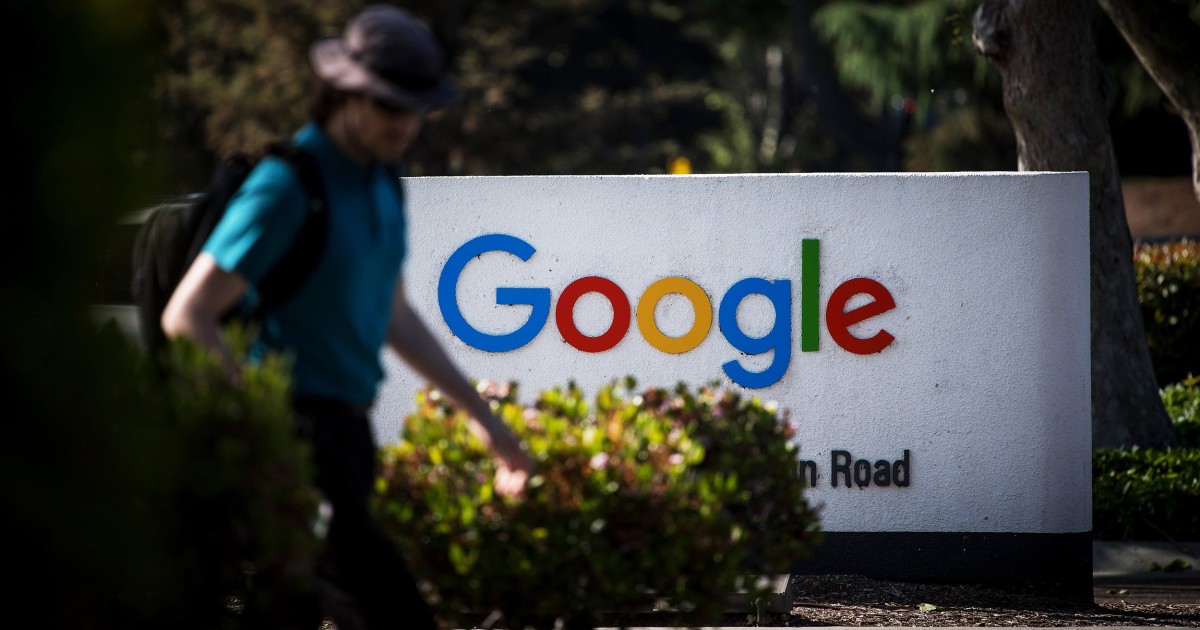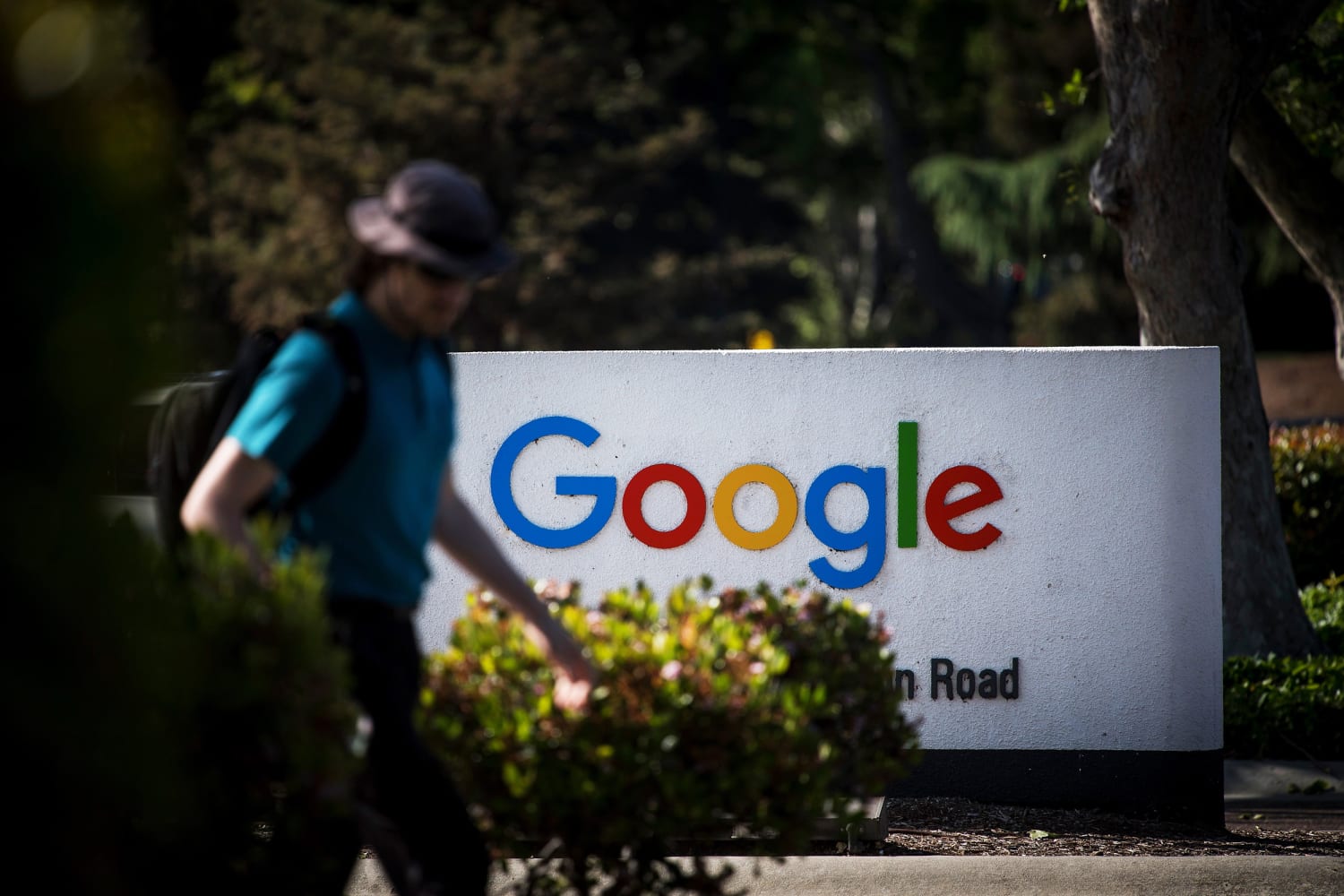
On Monday night, April Christina Curley, a diversity recruiter at Google, announced on Twitter that she had been fired in September.
She started at Google in 2014, helping the company improve its relationships with historically Black colleges and universities. Before taking the job, Curley tweeted that the company had not “hired a single HBCU student into a tech role.”
Six years later, Curley tweeted that she had “brought in over 300 Black and Brown students from HBCUs who were hired into [engineering] roles.”
Curley’s departure from Google is the second public dispute this month between the leadership of the company and Black women who have been celebrated for success in the tech field. Earlier this month, one of Google’s top female executives, Timnit Gebru — a highly respected research scientist, well known for her advocacy for increased diversity in the tech industry — said she also had been fired. The company’s head of research said Gebru had resigned.
The departure of Gebru, who served as a co-lead of the company’s Ethical Artificial Intelligence Team, came after she sent an email to colleagues saying that the company had forced her to retract a paper on ethical problems involving artificial intelligence systems used to understand human language, including one that powers Google’s search engine.
This time, Curley’s accusations about the company were even broader. Curley alleged on Twitter that during her time at Google she was denied multiple promotions, put on performance improvement plans, had her compensation reduced, was yelled at, excluded from meetings, denied leadership roles and harassed by managers, including being told that her Baltimore accent was a disability that she needed to disclose to colleagues. Curley further alleged that she was once asked by another manager “which of my teammates I would sleep with,” she wrote on Twitter.
Google declined repeated requests for comment on these allegations.
Familiar Story
Curley’s announcement this week caps a year in which Google employees have spoken out about the company’s treatment of Black and brown employees. In the three weeks since Gebru announced on Twitter that she was fired, over 2,690 Google employees signed a letter of support for her.
“Instead of being embraced by Google as an exceptionally talented and prolific contributor, Dr. Gebru has faced defensiveness, racism, gaslighting, research censorship, and now a retaliatory firing,” the statement reads.
An investigation by NBC News in May found that the company’s diversity, equity and inclusion programs had been reduced, according to current and former employees, who separately said that the reductions were made in an apparent effort to avoid being perceived as being biased against conservatives. Google denied that cuts were made in reaction to conservative criticism. But the investigation prompted an inquiry by 10 members of Congress into how Google is working to cultivate diversity within its workforce.
In June, the Black Googler Network, an employee resource group, worked with thousands of employees to come up with a list of demands regarding workforce representation, internal recognition, mental health and adequate time off, said one Google employee, who spoke on the condition of anonymity out of fear of being fired for speaking publicly.
The co-chairs of the network had a meeting with Sundar Pichai, the CEO of Alphabet, Google’s parent company, and other leaders to present their demands on June 9, the employee said.
“All they did was say, ‘We’re going to commit to hiring (30) percent of underrepresented leaders by 2025,” the employee said in an interview.
But “watered down” commitments are just one response to Black and brown employees demanding equity, the employee added.
“This Dr. Timnit story really stings because we’ve seen what happens to Black women in Google who push against the status quo and try to push for more equitable outcomes,” the employee said. “It’s usually that they’re forced to leave the company, seeing people who weren’t fired but were made miserable so they did end up resigning. I’ve seen those tactics used. I’ve also seen, ‘Oh this person is speaking out. Get them out of the company.’”
Google declined repeated requests for comment about these discussions.
“Constantly dehumanized”
Gebru’s email, sent shortly before she left the company, detailed her frustration with Google’s efforts to create a more inclusive workspace. She said that she felt “constantly dehumanized” at Google. The company declined to comment, but pointed to an email from Google’s head of research, Jeff Dean, to employees, published by the technology newsletter Platformer, in which he said that Gebru had resigned.
After Gebru left the company this month, members of Congress started to raise questions about diversity hiring. They drafted a letter demanding answers into how Google intends to improve its issues with retaining a diverse workforce.
“Full stop — We can’t prevent algorithmic bias in innovative tech if POC don’t have a seat at the table,” wrote Rep. Yvette Clark, D-N.Y., who spearheaded the letter, on Twitter, using an acronym for people of color.
Google isn’t the only tech company that has faced serious allegations of internal racism this year. Pinterest was accused of racism by two former ex-public policy officials, Ifeoma Ozoma and Aerica Shimizu Banks, who quit at the end of May and went public with their claims in June. At the time Pinterest told CNBC that the company had conducted an investigation and found that the employees had been treated fairly.
The technology industry has long been known for being dominated by white men, particularly in technical jobs. At Google, Black women represent only 0.7 percent of its technical workforce and Black employees make up 2.4 percent of the technical workforce overall, according to the company’s 2020 diversity report. At Facebook, Black employees make up only 1.7 percent of its tech workforce, the diversity report said.
Loyal following
After Curley shared her experience on Monday, students from historically Black colleges and universities with whom she worked over the years responded with an outpouring of support.
“I can tell y’all personally and professionally that April had an impact on my journey into CS [computer science] with her active presence on campus, resources she helped me get, and events she held for students,” wrote Brianna Fugate on Twitter. Fugate is an engineer at Mailchimp, and graduated from Spelman College in 2018.
Others who work to elevate students from HBCUs expressed dismay at Curley’s story as it spread rapidly across social media Monday night.
Nicole Tinson founded HBCU20x20 three years ago to connect Black people from the HBCU community with well-paying jobs and internship opportunities. The organization began a partnership with Google in September, she said.
But Tinson and her team became wary of the company after learning of Gebru’s situation. When they read Curley’s Twitter thread on Monday evening, Tinson decided to end the partnership between HBCU20x20 and Google.
“It’s really important for me to know that when we partner with a company — whether it’s a student looking for an internship or a professional looking for their next career move — we want to know that they’re going somewhere where they’ll be appreciated,” Tinson said.
“We want to know they’re going somewhere where there’s some sort of culture set up for inclusion where they can feel comfortable being themselves and feel a part of the team. What we’re continuing to see with Google specifically is a culture that isn’t willing to be disrupted and to accept everyone as they are, and who they are.”
Experts say that what happened to Gebru and Curley is a symptom of a larger problem with how Black people are treated in the technology industry. Meredith Broussard, a professor of journalism at New York University who specializes in artificial intelligence research and data journalism, described Gebru as “one of the most talented AI ethics researchers in the world.”
“The fact that she was pushed out is terrible and it brought to light these long-standing issues that Black women face inside big tech companies,” Broussard said. “There are long-standing issues of systemic racism, of institutionalized sexism, at big tech companies the same way that there are these issues everywhere else in the world. And big tech really needs to recognize these issues.”
Source: | This article originally belongs to Nbcnews.com










